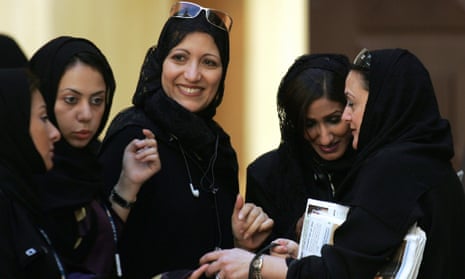When I wrote last week about the #WomenAgainstFeminism campaign, I expected some pushback: arguing that women are a victimized class is a surefire way to rile people up. But the theme of this recent criticism was that American women don’t have legitimate grievances because other women have it worse – and that’s telling.
One gentleman emailed to say he wanted to send me “to a place like Saudi Arabia where women are REALLY disadvantaged and oppressed”. Apparently women don’t have the right to complain about discrimination unless it’s explicit and international.
Interestingly, this guy is not the first to suggest that American women ought to stop working for equality here and exclusively seek to help women abroad. It’s amazing how many international women’s rights enthusiasts come out of the woodwork when you dare suggest that there’s room for women’s rights to advance in the US.
I’m wary of broadly painting Western women as universally less oppressed than others – there are actually many ways the US lags behind other countries on women’s rights, like political representation, corporate power and parental leave – but it is true that American women have more legal rights than women in some other countries. Saudi Arabia is the only country in the world where women aren’t allowed to drive. In Afghanistan, a woman can go to jail for leaving her abusive husband. Brazilian women can’t access abortions, nor can women in Ireland. According to a 2011 UN report, 127 countries don’t explicitly outlaw marital rape.
But is that really the standard by which people want to judge equality? So long as we have the right to vote, drive, go to school and work, American women should shut our mouths and be grateful to American men for allowing us to have that much?
The righteous fight for bare minimums doesn’t have much of a ring to it. The goal of feminism is justice – not to just be better off than other oppressed women. There’s no such thing as equal by comparison.
The truth is that in spite of the gains women have made over the years, we are still discriminated against politically and culturally. Women are still attacked, raped, trafficked (sexually and otherwise), paid less than men, objectified, and denied our legal rights to abortion. I mean, we’re still debating access to birth control in the US – so let’s not overstate how good women have it.
Yes, feminists should support women’s rights and their advocates abroad – by asking those women what they need, not telling them – but that doesn’t mean we should do so to the exclusion of all efforts at home. And the complex conversation about American feminists’ responsibilities to international causes is one to be had by people actually concerned with women’s rights – not those who only express concern when feminists say something they don’t like.

